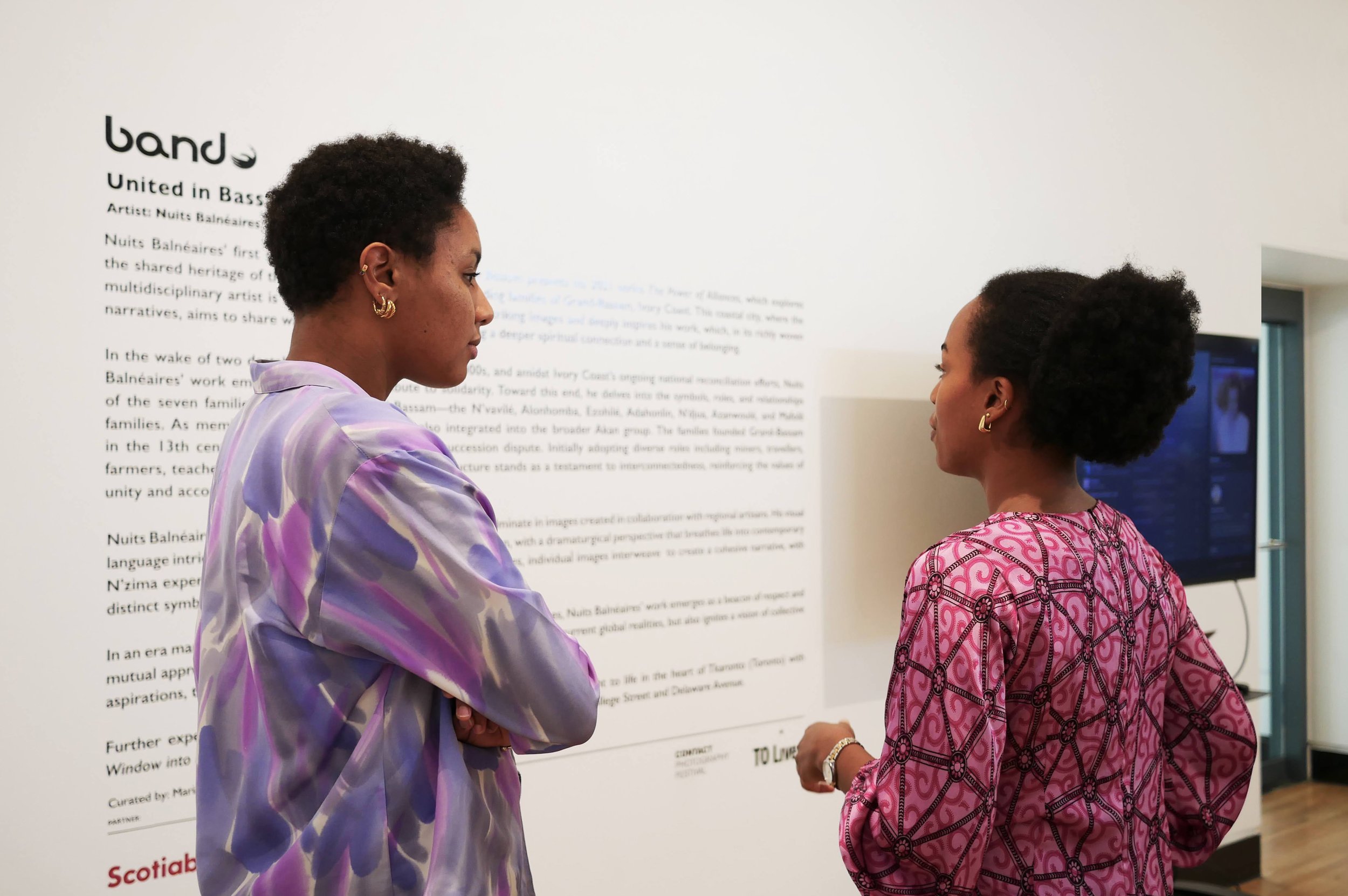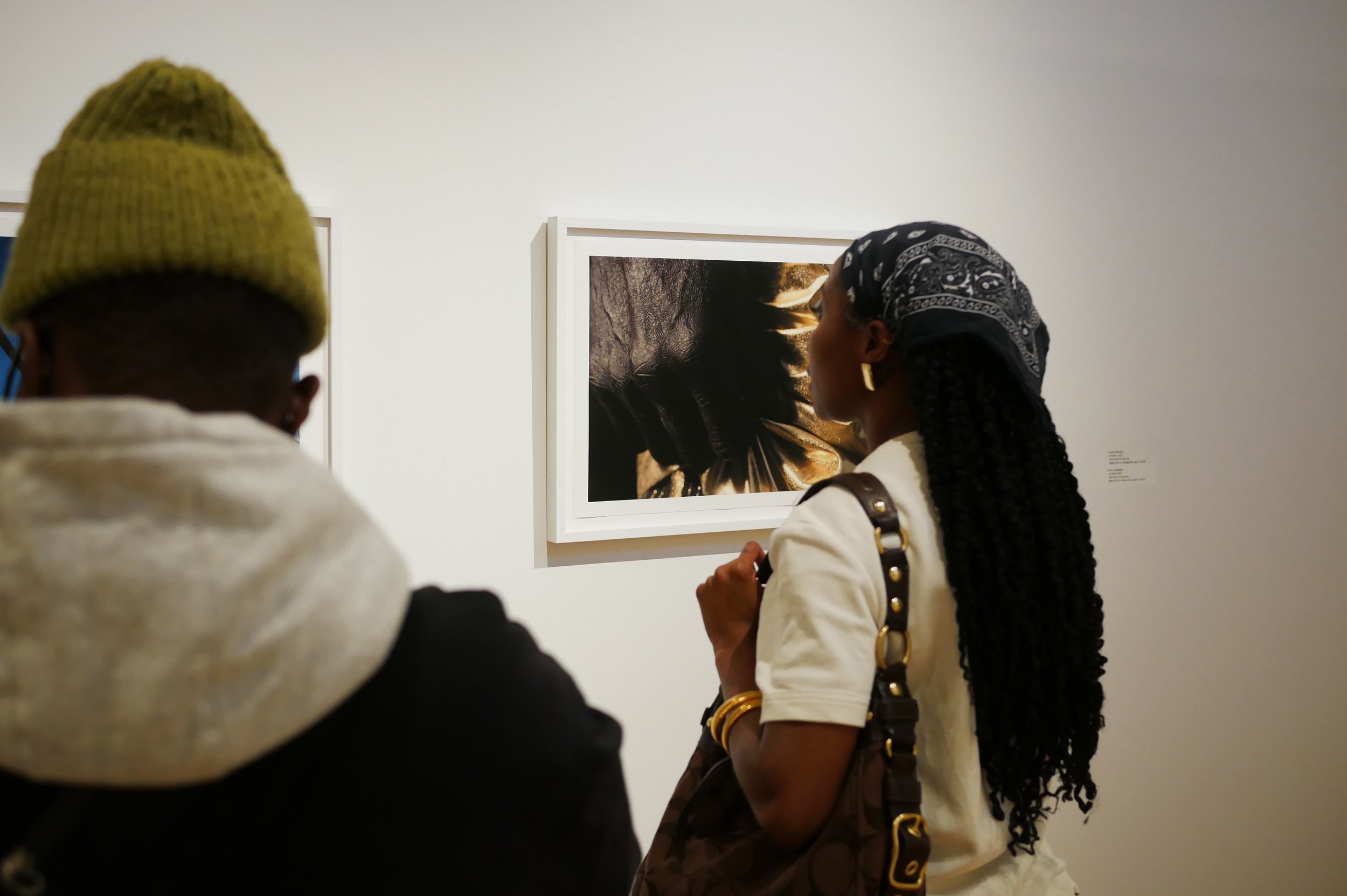THE POWER OF ALLIANCES
In the wake of two destabilizing political crises in the 2000s, and amidst Ivory Coast’s ongoing national reconciliation efforts, Nuits Balnéaires’ work emerges as a poignant tribute to solidarity. Toward this end, he delves into the symbols, roles, and relationships of the seven families who founded Grand-Bassam—the N’vavilé, Alonhomba, Ezohilé, Adahonlin, N’djua, Azanwoulé, and Mafolê families. As members of the N’zima, they are also integrated into the broader Akan group, predominantly situated in present-day Ivory Coast and Ghana. The families founded Grand-Bassam in the 13th century after being exiled following a succession dispute within the Akan. Initially adopting diverse roles including miners, travellers, farmers, teachers, and rulers, their enduring social structure stands as a testament to interconnectedness, reinforcing the values of unity and accountability.
Exhibition View | Courtesy of BAND Gallery
Nuits Balnéaires’ extensive research and meticulous approach culminate in powerful images portraying figures set against local scenery, created in collaboration with regional artisans. The artist engages in the dynamic dialogue between his subjects and their surroundings, attuned to every detail, and embracing spontaneity. His visual language intricately weaves together cultural heritage and tradition, with a dramaturgical perspective that breathes life into contemporary N’zima experiences and individual stories. Through portraiture, Nuits Balnéaires strives to evoke a spectrum of emotions. The use of stark contrast between background and attire, highlighted with harmonious shades of gold and sepia, imbues his work with a nuanced intensity. His poetic approach guides the viewer’s experience, sometimes drawing them intimately close, at other times holding them at a respectful distance. In The Power of Alliances, individual images interweave to create a cohesive narrative, with distinct symbols illustrating the defining traits of each family. For example, N’djua 3 features fire and a dog as representations of the family’s self-discipline, reflecting their poise, control, and masterful serenity.
Collective endeavours are pivotal in building and preserving community. The N’zima Kôtôkô built kinship and a sense of shared history through gatherings like the Abissa. The N’vavilé originally introduced the Abissa as a spiritual and cathartic ceremony uniting the seven families and heralding the New Year—It has since evolved into a magnificent festival that draws thousands. Its vibrant music and dancing moves participants to express their true selves, and also serves as a powerful medium for reconciliation. The work Abissa 1 encapsulates that ephemeral moment when eyes, hearts, and minds open to welcome the unknown.
In challenging times, the importance of nurturing connections and valuing collective identity over individual contributions becomes paramount. Each family within the community plays a vital role. For instance, the Azanwoulé women take on the communal grief during the mourning of N’zima kin, singing burial hymns and crying on behalf of the whole group. This unique form of support is depicted in Azanwoulé 1, which features three figures draped in traditional red-and-black Akan mourning fabric, each adorned with a black lace veil, while one of them dons a pendant of the Virgin Mary—a juxtaposition highlighting the complexity of their identities and embodying the coexistence of various realities and beliefs in Bassam.
In an era marked by the difficulties of navigating social and physical landscapes, Nuits Balnéaires’ work emerges as a beacon of respect and mutual appreciation. The Power of Alliances not only mirrors the intricacies of current global realities, but also ignites a vision of collective aspirations, tracing a path towards unity.
Words by MARIAH COULIBALY






























